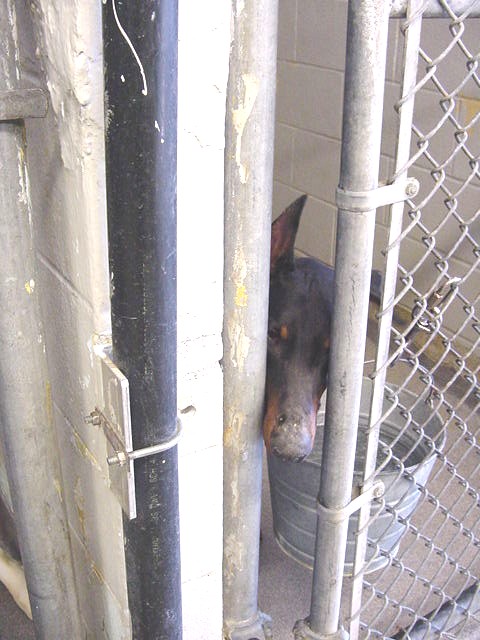I wrote this article for a local newspaper after it happened -
Turns out the cats taken from Barbara were actually killed and the Fritch's were scurrying around trying to get different cats into an area so they could tell everyone they were Barbara's cats.
--------------------
-----------------------------
When Animal Shelters are the abusers...
Cheryl Baker
What happens when an animal shelter doesn’t want to answer questions about their high kill rates or use of funds? According to over 50 protesters last Saturday, they must stand accountable to the very people who financially support them.
“When 50 cats enter a shelter in one day, it’s always a challenge,” stated Diane Davison, a local activist and former board president of another animal shelter. Davison is concerned not only for the recent confiscation of 54 cats from Barbara Dudosh’s cat rescue in West Allentown, but for the cats already in the shelter that might be killed to make room for them.
Charles Wallace, cruelty investigator for the shelter stated the cats were being “medically evaluated.” When asked if any were euthanaized, Wallace refused to answer and responded that he could not discuss the matter further.
“They’re very secretive,” said Davison, adding that the shelter will not release any statistics of their operation. Requests made by Davison and others for statistics of animals surrendered and animals destroyed, have always been denied. However, information obtained by East Penn News, the shelter’s 990 Form for 2005 indicates over $24,000 was spent on animal rendering and disposal. That figure, says Davison tells a lot about how many animals are killed at Lehigh County Humane Society because the cost of dead body disposal goes by weight.
Board President, Bruce Fritch, had stated in a previous interview by East Penn News that because his organization was “private,” they did not have to answer to anyone.
Funding for the shelter comes from many sources and includes yearly memberships, bequests, public and corporate donations and private contributions.
Also listed on their 2005, 990 tax form, contributions, gifts, grants and other amounts received totaled $707,435.00.
Net assets or fund balances at the year’s end totaled $2,882,520.00 And investment- securities for the same year are listed as $1,609,768.00.
So the question haunting everyone’s mind lately is what exactly is the shelter doing with two million dollars in assets?
Davison argues the shelter could be doing so much more with the money they have.
Could a low cost or free spay/neuter program be implemented? “No question,” states Davison. “The only way to stop the problem of homeless animals is to have an aggressive, pro-active spay/neuter program.”
Working with rescue groups to place animals before they are euthanized is another effective means to reducing homeless pets. And according to many local rescue workers, Lehigh County Humane society does not aggressively utilize all resources available to them. They have continuously ignored attempts by rescue groups to help, says Davison.
The shelter does offer spay/neuter at a Coopersburg vet hospital by Dr. Bruce Puchat, who ironically is also a board member, but what they fail to realize, says Davison, is that most people adopting from Lehigh County Humane can not get to Coopersburg because many do not have cars and the distance is very inconvenient.
The shelter could easily institute a free spay/neuter program, which would significantly reduce the numbers of animals destroyed.
Last year the shelter was to open their own spay/neuter clinic but animals are still being adopted unaltered. When this happens, the shelter is guaranteeing a re-population of animals, which might be in line with Bruce Fritch’s statement that his shelter is a ‘private’ business.
Animal shelter for profit?
That statement just doesn’t sit right with Donna Dougherty, a local businesswoman and 6 year shelter volunteer. Dougherty recently started her own group after Lehigh County Humane asked her to leave when she offered to help the shelter find rescues and foster homes. Dougherty was distraught by the fact that Lehigh County Humane would rather destroy a healthy, adoptable animal than let approved rescue groups come in and help place them.
Dougherty’s goal is to network with other people to find homes for shelter animals and reduce the numbers of animals that are killed. Warm Hearts 4 Cold Noses (www.warmhearts4coldnoses.com) recruits people for various activities including fostering, off-site pet adoptions, meet and greets, fund raising and animal transports.
“People do not send Lehigh County Humane Society money because they want them to kill animals – they want them to save animals,” stated Davison. “They are not doing the job the public wants them to do.” Davison believes the shelter needs a change of leadership and is dedicated to making this happen.
For more information:
www.onevoice4animals.webs.com
Sunday, March 15, 2009
Subscribe to:
Comments (Atom)
Did he make it out alive?

doberman at LCHS


